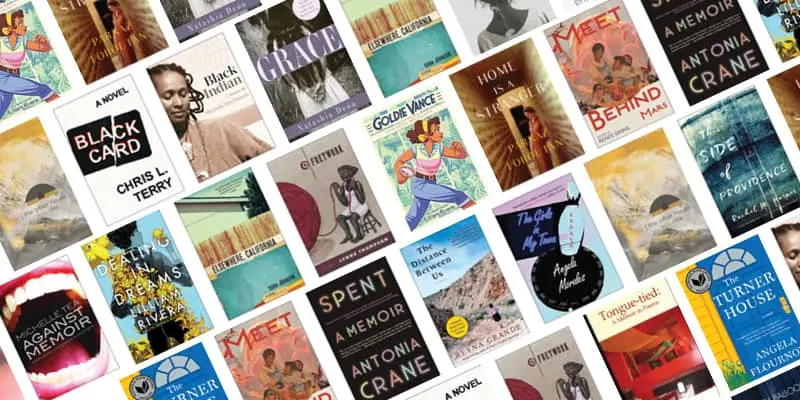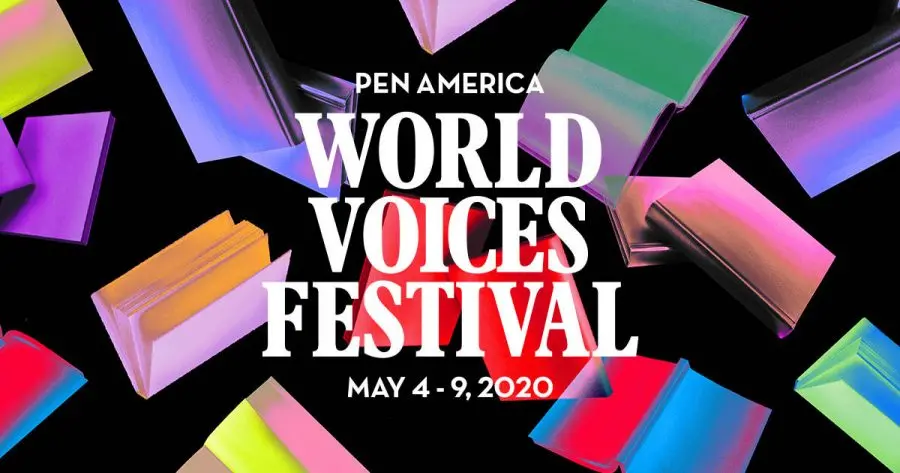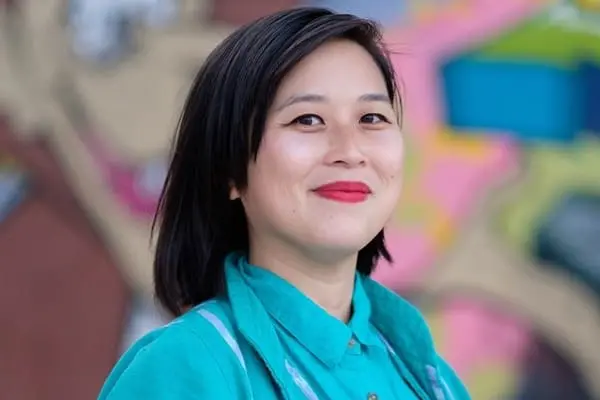This essay was written by 2020 Emerging Voices Fellow Damien Belliveau at the culmination of the fellowship.

In a recent phone call with Fellowship manager Amanda Fletcher, I told her how surprised I’d been to see the announcement for our final reading. Not because the final reading was rapidly approaching — the Corona virus quarantine had effectively annihilated any reliable sense of time — but because the invitation included a photo of me, and my cohort, and in that picture I am a different person.
Only six months old, that image featured a figure that was, objectively, me, but it was a me that had not yet met my mentor, Chris L. Terry. The me in that photograph hadn’t read the works of Dana Johnson. That version of me was still months away from spending five weeks in a masterclass with Alex Espinoza.
The dude in that photograph (I enjoyed the dubious distinction of being the only guy in the 2020 cycle) had never written a poem, had never submitted writing for publication, and had given very little serious thought to pursuing a graduate degree in creative writing.
Six months after beginning this journey as a PEN America Emerging Voices Fellow, I am completely, thoroughly, demonstrably, a different person. And I can’t imagine who I’d be without the opportunities that the Fellowship has provided.
My mentor, Chris, gave me a reading list that illuminated blind spots that I didn’t even know I had. From Danzy Senna to Philip Roth to Mat Johnson, he put me on to books that dealt with themes similar to those in my own work. I’ll be forever grateful for that reading list.
We were told our mentors were only obligated to read 60 pages of our work. When I told Chris that I had a 430-page manuscript, and that it was rough (I mean rough), he said, Send it. Just send it. In a matter of weeks, he gave me notes on my entire project. I was able to incorporate his feedback into my revisions, and Chris then gave me notes on over a hundred of those revised pages. By the end of the fellowship, I’d completed an entirely new draft of my book, and while I know it needs another pass (or two, or three), the manuscript wouldn’t be as far along as it is without Chris’ insights, contributions, and encouragement.
What a gift.
The night of our first author evening with Dana Johnson, I told her that reading her stories was like breathing for me. I wasn’t lying, and I wasn’t putting too much on it either. I’d finally been introduced to an African American author who was writing about California and Californians, a writer who was writing about people who happened to be black, as opposed to writing about being black. Reading Dana’s work was like encountering the fully realized version of what I was trying to do with my own stories. This author, through this fellowship, allowed me to see the possibility of my own story, and myself as a writer, existing in the literary world.
What an invaluable gift.
When Alex Espinoza told me that he thought my pages were great, and that he read it so fast because it flowed so well, and then said, oh yeah, here’s a few dozen notes, his critiques didn’t demoralize me, they inspired me. In his master class, Alex served as both champion and critic. He was our coach. He provided a safe space. He was tender. He was thoughtful, and kind, and open. But he was always honest, and he asked us to look at our work in ways that would elevate the material without lowering our self-esteem. And he did all of this through a computer screen, remotely. Not once during our master class did I feel like I or my cohort had been short-changed. We had a special, intimate, unique experience.
A gift in Spanish is un regalo, y en serio, Alex, ¡que regalo!
You know, when things began to get a little sketchy with COVID, when the quarantine began and no one was quite sure how long this whole pandemic might last, none of us knew what this would mean for the fellowship. Would an in-person experience have changed the fact that I wrote my first poems during my fellowship-provided UCLA Extension Poetry class, via Zoom? No.
Would an in-person experience have changed the fact that, following Chris Daley’s Submission Seminar (via Zoom), I submitted my work, for the first time, for publication? No.
Would an in-person experience have changed the fact that I’m preparing to apply for the USC Ph.D. in Creative Writing because my interaction with all of the authors, and publicists, and agents, and managers that the fellowship facilitated got me so fired up about pursuing my true passion? No. Absolutely not.
We met Melissa Chadburn, and Jeremy Radin, and Victoria Chang, and Kima Jones, and Dan Smetanka, and Dara Hyde, and Aimee Bender, and Julia Callahan all remotely. I can only speak for myself, but I thought the meetings were amazing. I learned so much from these professionals. I made personal, emotional connections. And I now have relationships with people inside the industry.
Like Chris, and Dana, and Alex, and especially Amanda, the PEN America Emerging Voices Fellowship is a gift that transcends any one component. The fellowship is about more than being in a room with people. The fellowship is about being in the world with people.
The fellowship is about established writers, and poets, and creators, and literary facilitators — the gatekeepers — extending a hand, and welcoming in those of us who, for whatever reason, never dared to imagine that we, too, possessed our own gifts.
Our stories are our gift, and what the Emerging Voices Fellowship does is help people like me, underrepresented people, marginalized people, figure out how to access our stories, and shape our stories, and share our stories with the world.
We don’t need to be in the same room for our voices to emerge.
What we need is fellowship.
And now I’ve got it.




